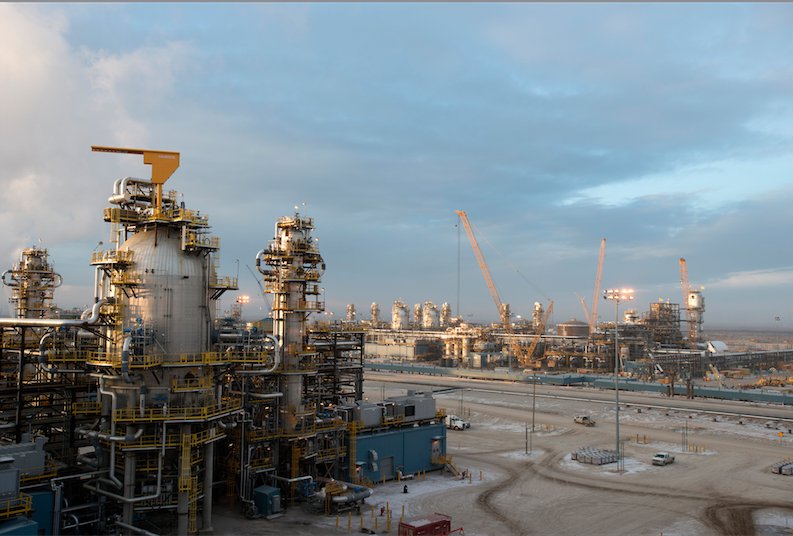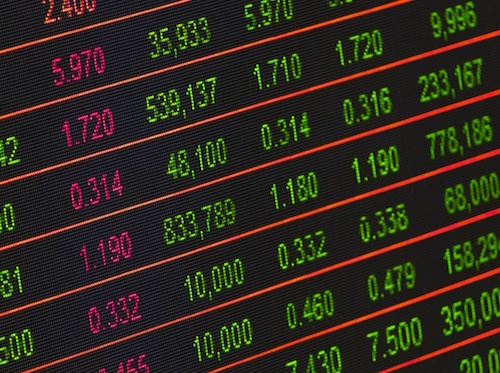The Slow Painful Death of Fossil Fuel
Quote from Steve on December 5, 2020, 8:38 amImperial Oil's massive write-off suggests the era of stranded Canadian assets is already here
The energy stalwart no longer plans to develop a portion of its unconventional portfolio
Imperial Oil just became the most high-profile Canadian oil producer to give up on some of its fossil fuel assets in Alberta.
“Imperial has re-assessed the long-term development plans of its unconventional portfolio in Alberta, Canada and no longer plans to develop a significant portion of this portfolio,” the company said in a statement after markets closed on Monday.
The company said would take an impairment charge of about $900 million to $1.2 billion in the latest quarter.
___________________________________________________
Imperial Oil reports one billion barrel drop in bitumen reserves at end of 2020
Update February 26, 2021
Imperial Oil Ltd. is cutting one billion barrels from its inventory of oilsands bitumen following a year marked by low oil prices and budget cutting amid the COVID-19 pandemic and a global price war between major oil producers.
In a regulatory filing on Wednesday, the Calgary-based company says its proved plus probable bitumen reserves fell to 4.46 billion barrels as of Dec. 31, 2020, from 5.45 billion barrels on the last day of 2019, with most of the change due to “technical revisions.''
Its reserves of upgraded synthetic crude from the oilsands fell to 583 million barrels from 623 million after it produced about 25 million barrels in 2020. [Read more]
Imperial Oil's massive write-off suggests the era of stranded Canadian assets is already here
The energy stalwart no longer plans to develop a portion of its unconventional portfolio
 Imperial Oil just became the most high-profile Canadian oil producer to give up on some of its fossil fuel assets in Alberta.
Imperial Oil just became the most high-profile Canadian oil producer to give up on some of its fossil fuel assets in Alberta.
“Imperial has re-assessed the long-term development plans of its unconventional portfolio in Alberta, Canada and no longer plans to develop a significant portion of this portfolio,” the company said in a statement after markets closed on Monday.
The company said would take an impairment charge of about $900 million to $1.2 billion in the latest quarter.
___________________________________________________
Imperial Oil reports one billion barrel drop in bitumen reserves at end of 2020
Update February 26, 2021
 Imperial Oil Ltd. is cutting one billion barrels from its inventory of oilsands bitumen following a year marked by low oil prices and budget cutting amid the COVID-19 pandemic and a global price war between major oil producers.
Imperial Oil Ltd. is cutting one billion barrels from its inventory of oilsands bitumen following a year marked by low oil prices and budget cutting amid the COVID-19 pandemic and a global price war between major oil producers.
In a regulatory filing on Wednesday, the Calgary-based company says its proved plus probable bitumen reserves fell to 4.46 billion barrels as of Dec. 31, 2020, from 5.45 billion barrels on the last day of 2019, with most of the change due to “technical revisions.''
Its reserves of upgraded synthetic crude from the oilsands fell to 583 million barrels from 623 million after it produced about 25 million barrels in 2020. [Read more]
Quote from Steve on January 29, 2021, 8:12 amCNRL, Imperial, 11 Others Face Rating Downgrades Due to Competition from Renewables
January 29, 2021
Alberta fossils Canadian Natural Resources Ltd. and Imperial Oil are on a list of 13 big oil and gas companies that may face rating downgrades within weeks, and Suncor Energy was also assigned a negative outlook, after ratings agency Standard & Poors shifted its risk assessment for the entire fossil industry from “intermediate” to “moderately high”.
“On notice of a possible downgrade are Australia’s Woodside Petroleum as well as multinationals Chevron, ExxonMobil, Imperial Oil, Royal Dutch Shell, Shell Energy North America, Canadian Natural Resources, ConocoPhillips, and French group Total,” the Guardian reports, citing an S&P release earlier this week. “S&P said it was also considering downgrading four large Chinese producers—China Petrochemical Corporation, China Petroleum & Chemical Corporation, China National Offshore Oil Corporation, and CNOOC,” and raised concern but planned no action just yet on colossal fossil BP.
The news report says S&P is reacting to increased competition the fossil industry faces from renewable energy.
“In particular, we note significant challenges and uncertainties engendered by the energy transition, including market declines due to growth of renewables; pressures on profitability, specifically return on capital, as a result of high dollar capital investment levels over 2005-2015 and lower average oil and gas prices since 2014; and recent and potential oil and gas price volatility,” the agency stated Wednesday.
When a business goes through a ratings downgrade, it’s “usually due to a material and fundamental change in the company’s operations, future outlook, or industry,” Investopedia explains. When it happens, “a downgrade generally leads to more negative press,” while making it more expensive for the company to borrow money to fund its operations.
CNRL, Imperial, 11 Others Face Rating Downgrades Due to Competition from Renewables
 January 29, 2021
January 29, 2021
Alberta fossils Canadian Natural Resources Ltd. and Imperial Oil are on a list of 13 big oil and gas companies that may face rating downgrades within weeks, and Suncor Energy was also assigned a negative outlook, after ratings agency Standard & Poors shifted its risk assessment for the entire fossil industry from “intermediate” to “moderately high”.
“On notice of a possible downgrade are Australia’s Woodside Petroleum as well as multinationals Chevron, ExxonMobil, Imperial Oil, Royal Dutch Shell, Shell Energy North America, Canadian Natural Resources, ConocoPhillips, and French group Total,” the Guardian reports, citing an S&P release earlier this week. “S&P said it was also considering downgrading four large Chinese producers—China Petrochemical Corporation, China Petroleum & Chemical Corporation, China National Offshore Oil Corporation, and CNOOC,” and raised concern but planned no action just yet on colossal fossil BP.
The news report says S&P is reacting to increased competition the fossil industry faces from renewable energy.
“In particular, we note significant challenges and uncertainties engendered by the energy transition, including market declines due to growth of renewables; pressures on profitability, specifically return on capital, as a result of high dollar capital investment levels over 2005-2015 and lower average oil and gas prices since 2014; and recent and potential oil and gas price volatility,” the agency stated Wednesday.
When a business goes through a ratings downgrade, it’s “usually due to a material and fundamental change in the company’s operations, future outlook, or industry,” Investopedia explains. When it happens, “a downgrade generally leads to more negative press,” while making it more expensive for the company to borrow money to fund its operations.
